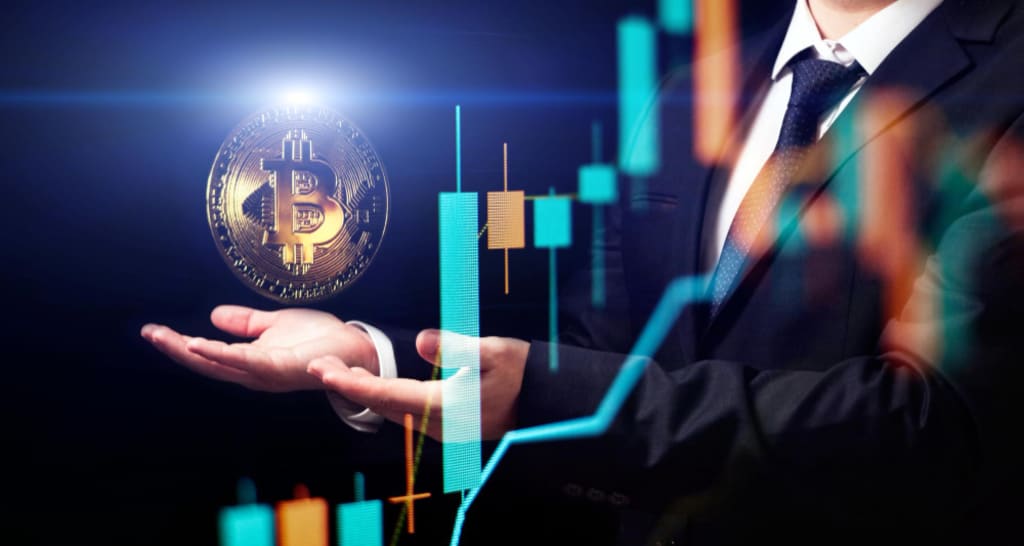The rise of cryptocurrencies like bitcoin begs question of what is money
Crypto market

At the point when you start to dig into the subject of what cash truly is, you should be ready for some mysticism. Cash, monetary standards, and other such media of trade contrast especially in their experiences and method for activity and have changed as of late into structures that are scarcely justifiable.
For quite a long time, printed coins not just addressed the worth and trust of banks, their investors, and ultimately country states, yet additionally were considered significant in light of the fact that they were produced using valuable metals like gold and silver. These metals are challenging to move around in enormous amounts, thus banknotes were imagined as soon as the seventh hundred years in China and brought to Europe in the thirteenth hundred years. Dissimilar to coins, banknotes were not treated as significant in themselves since they were just imprinted on in any case useless paper. Rather, they filled in as a type of promissory note or IOU that could be introduced to the banks that gave them in return for their presumptive worth in valuable metal, coins, or bullion.
In the twentieth 100 years, most national banks and states quit backing up their monetary standards with valuable metals, but banknotes keep up with fluctuating qualities, with some sought after as media for trade both locally and universally. Dollars and euros are profoundly respected and favored monetary standards for worldwide business, as well concerning loading private ledgers.
Presently we have bitcoins and other computerized monetary standards that exist altogether in blocks of zeros and ones and are even "mined" by machines running calculations. What's more, recently, bitcoins and their kind were authoritatively considered items by the Product Fates Exchanging Commission, which will presently direct them.
So as the greenbacks and quarters in our pockets gradually vanish, supplanted by a series of digits put away on our cell phones, and cash removes one more step from being attached to anything of significant worth, a philosophical inquiry rings a bell: does cash actually exist? Also, assuming this is the case, what gives it its worth?
What's esteem without esteem?
Cash is a "fungible" thing, and that implies that the trading of any one piece for a part of equivalent worth is certainly not a "taking" of property. That is, you don't claim a specific US$100 bill. You own the worth it addresses.
This is the manner by which banks have long worked since when you store your cash, you are not qualified to get similar coins or bills back as you kept. This is additionally how "fragmentary hold" banking started (in which banks don't keep all the cash in the store "inside" the bank, simply some small amount of it) and was not viewed in some way as burglary. Individuals took their cash to a bank, and they were given a note of store, which qualified them to pull out a similar sum in addition to some premium, yet they were not qualified for the very coins or bills that they saved.
The cash on the store in a bank isn't all genuinely in the bank (then again, actually which is in security store boxes) and has not been true since banking was created. At the point when you store a total, you as of now do not own the paper or other vehicle of trade utilized for the store, legitimately. What you own is an obligation and commitment by the bank to return the same measure of cash with revenue.
John Searle has portrayed things like cash as "some extraordinary sort" of friendly item. That is, X (coins, charges, series of digits) function as Y (cash) in setting C (an economy, bistro, bank, and so forth). On account of cash, anything might possibly take on the Y job even without an X (think a deal economy). Where metals, then, at that point, bills, and presently bits in PC memory play the job of X, cash likely could a "free-stand" Y, meaning it could exist without anything to address it aside from the snare of purposeful states (the obligations and commitments) that make more recognizable types of cash capability. It's just an actual sign that may be a note in a record.
Without valuable metal norms backing public monetary forms, and in the time of advanced exchanges, cash is decreasingly attached to banknotes, similarly, as its connections to metals have blurred. Advanced records track trades and records, with advanced strings in PC recollections addressing the trust and worth we once connected to additional strong things like currencies, bills, and notes, in additional transient carefully encoded, quickly open structures joined to cellphones, PCs, and chip cards.
An exciting modern lifestyle
New kinds of digital currencies (where cryptography safeguards its respectability) like bitcoin and others make the idea one stride further, conveying the banking to every one of its clients, binding the exchanges and records to no specific party except for all clients on the double. This is like reflected bank servers, however, bitcoin is reflected among all bitcoin proprietors.
A bitcoin is however ownable as dollars seem to be the point at which they are kept in a bank. Skirting the phase of physical, fungible monetary forms, bitcoins exist by ideals of their portrayals in a record on the internet. The data encoded in an enormously conveyed and continually refreshed blockchain is unequipped for the selectiveness expected for claiming objects in the customary sense. In any case, the equivalent is valid for the data that tracks the majority of the cash on the planet. Cash in essentially every category exists and streams in a comparable state, addressed by computerized bits.
Bitcoins in any case miss the mark on the institutional ensures that different sorts of cash have because of countries and their regulations.
Exchanging on trust
Contributors to banks are safeguarded in their obligations by states, by and large, and through agreements with their banks. State protection and the legally binding assurance that a bank will take care of what has been placed into them intend that there is some power behind our confidence in the proceeded presence of an individual's abundance while carefully put away in a bank's servers. The blockchain exists on numerous servers on the double, spread across the universe of bitcoin proprietors.
Without government protection or legally binding ensures, just common trust keeps up with the worth and respectability of the framework. What bitcoin proprietors own is the obligation, similarly to the people who own cash in banks own obligations that are kept in bits. They don't possess the pieces that include the data addressing that obligation, nor the actual data, they own the social article - the cash - that those pieces address.
Bank records exist. They are unmistakable, despite the fact that computerized, and they record the obligations owed among parties. While the internet is transient, it is still genuine and actually based. Advanced bank records currently track cash without the need for actual exchanges of monetary standards.
Bitcoins also exist as advanced records of commitments, genuinely encoded on servers of the people who hold them, engendered and conveyed for straightforwardness and security, and scrambled for protection. Bitcoins are just about as genuine as cash in banks. What's most captivating about these new computerized cryptographic forms of money is the amount they uncover the dreamlike idea of monetary standards and abundance in our digitized economy.
In the event that bitcoins are all around as genuine as whatever other cash, how genuine might the cash at any point be?
If you like to get rich with bitcoin you can get access from
>>Here<<How To Get Rich With Bitcoin Even If You Have No Clue About Technology
Do you like to Reap Massive Crypto Profits?
About the Creator
Sithum Chathumina
I am an experienced cryptocurrency trader and I am an expert in trading






Comments
There are no comments for this story
Be the first to respond and start the conversation.